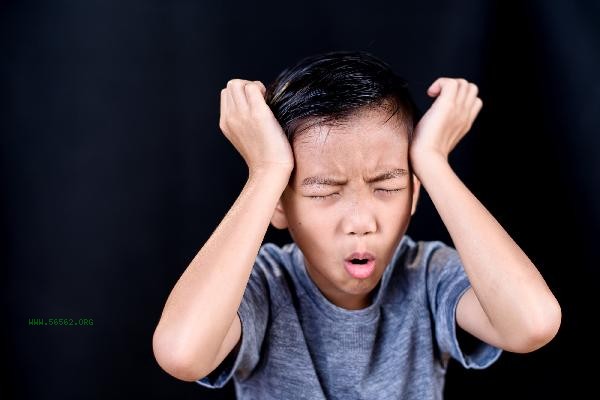During the period when children drink traditional Chinese medicine, they generally need to avoid consuming mung beans, radishes, raw and cold foods, spicy and stimulating foods, and greasy foods. These foods may affect the absorption of medicinal effects or increase gastrointestinal burden, and specific contraindications need to be adjusted according to the nature of traditional Chinese medicine and the physical condition of the patient.

1. Mung beans
Mung beans have a cold nature and have the effect of clearing heat and detoxifying, but taking them together with warm tonifying traditional Chinese medicine may reduce their efficacy. It is especially important to avoid taking traditional Chinese medicine for treating wind cold colds and spleen and stomach deficiency cold. The protein contained in mung beans can easily combine with traditional Chinese medicine alkaloids to form precipitates, affecting the absorption of effective ingredients in drugs.
2. Radish
Radish has the effect of breaking down qi and promoting digestion. Consuming Qi tonifying Chinese herbs such as ginseng and astragalus during consumption can weaken the nourishing effect. Raw radish containing glucosinolates may stimulate the gastrointestinal mucosa, and when taken together with bitter and cold traditional Chinese medicine, it can easily cause abdominal pain and diarrhea. The digestive promoting properties of radish may accelerate drug metabolism and shorten the duration of drug efficacy.
3. Raw and cold foods
Ice cream, cold drinks, etc. can lower gastrointestinal temperature and affect the dissolution and absorption of effective ingredients in traditional Chinese medicine. Raw and cold foods can easily damage spleen yang, so it is even more important to avoid consuming traditional Chinese medicine such as Wenli San Han. Children with weak spleen and stomach may experience nausea and vomiting after consumption, exacerbating the discomfort of taking medication.

4. Spicy and stimulating foods
Spicy and hot foods such as chili peppers, onions, ginger, garlic, etc. may alter the medicinal properties of traditional Chinese medicine, especially when taking heat clearing formulas, they should be avoided. Spicy food can irritate the gastrointestinal mucosa, and when taken together with bitter and cold traditional Chinese medicine, it can easily cause stomach pain. Some substances such as lamb and chives may induce allergies and affect the efficacy of traditional Chinese medicine for skin diseases.
Fifth, greasy foods
Fried foods and high-fat foods increase digestion burden and slow down the absorption rate of traditional Chinese medicine. Greasy foods may contain particles of traditional Chinese medicine, hindering the contact between active ingredients and the intestinal wall. When taking traditional Chinese medicine for strengthening the spleen and promoting digestion, it is particularly important to control the intake of fats and oils to avoid counteracting the effects of the medicine.

In addition to the above taboos, it is recommended to keep a light diet during taking the medicine, choose digestible staple foods such as rice porridge and noodles, and properly match with steamed vegetables and fruits. Traditional Chinese medicine and Western medicine should be taken with a two-hour interval to avoid interaction. Parents should observe the changes in bowel movements and appetite of their children after taking medication, and promptly consult a traditional Chinese medicine practitioner to adjust their diet plan if any abnormalities occur. When boiling traditional Chinese medicine, pay attention to the cleanliness of the utensils. The medicine should be taken warm to avoid alternating cold and hot stimulation. After taking the medicine, a small amount of warm water can be used to rinse the mouth to reduce residual bitterness.









Comments (0)
Leave a Comment
No comments yet
Be the first to share your thoughts!